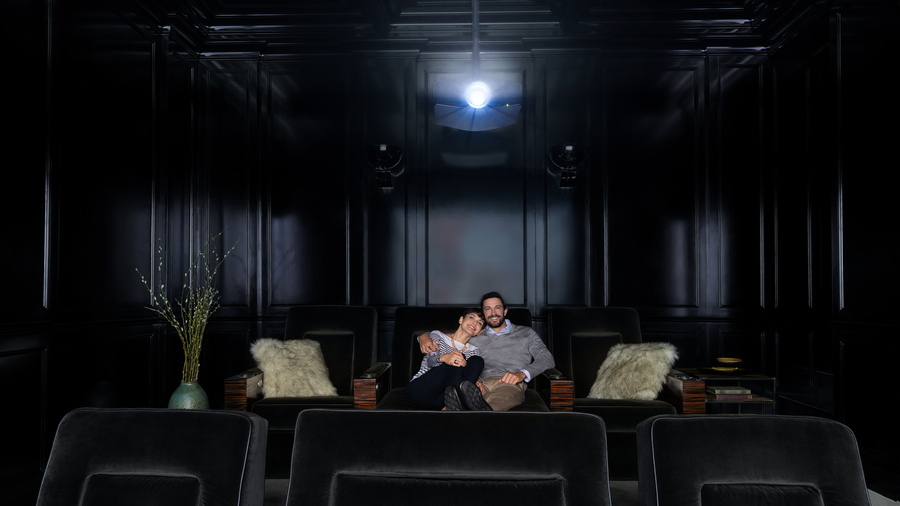Why You Want a Professional Designer for Your Dream Home Theater
Home Theaters Are a Heady Mix of Art and Technology

There’s nothing that says you can’t put together your own home theater. Indeed, many homeowners do. A home theater can be a relatively straightforward room with a large screen and a sound system for an emotional viewing experience.
One person's idea of an exciting viewing experience in a home theater can be wildly different from another. Some may want their home theater to fit into a living area or game room. Others want nothing less than a full-fledged dedicated room with lounge seating, a 13-channel surround system, and a 150-inch screen. Some like the theater to fit with their living area décor and others want one that makes a statement.
GHT Group (formerly Georgia*Home*Theater, get it?) has been a home theater designer and integrator in the Atlanta area for over 30 years. We’re not going to tell you which type of home theater is right for you – you tell us, and we’ll make it a reality in your Duluth home! But we do have some definite ideas why you want to hire a pro like us for the job. See why below!
About the Room
You can make a home theater work in many spaces. That said, it works better in a rectangular one. Why? The audio acoustics for home theater multichannel surround sound work better in a rectangular area. Ideally, you want a rectangle with a ratio of roughly 1.6 to 2.4, or in a large room, one that is 16 feet by 24 feet. Watch ceiling heights too. Today's immersive Dolby Atmos and DTS:X soundtracks use ceiling speakers, but their effect is diminished above 12 feet. Stay away from square rooms for sound quality and keep the ceiling height from 8 to 12 feet. You can alter a room with lowered ceilings for both acoustics and decorative effects like lighting, and we can work with your builder to ensure the room will work.
Can Everyone See?
Seating is a critical part of home theater planning, and it will also dictate things like what size room you need (if you have the option to build it), the screen size, and the speaker placement for sound. If you are using high-backed lounge seating, you should consider raised seating to ensure all seats have a good sightline to the screen. Naturally, if you have only one row of seating, this isn't an issue. But for larger theaters with two or more rows, the stadium seating arrangement may be necessary, especially since screens should be at eye level and not have people craning their neck upward like in the front rows of the cineplex – the seat no one wants.
Control the Light
Are you converting a bonus room above the garage or a daylight basement for your theater? Any theater room with windows needs a strategy for managing light. We recommend motorized blackout window treatments to seal out light so you can watch a movie in darkness any time of day. But there are times you don’t want total darkness, as when you watch college or pro football on a weekend afternoon. You may want a screen with special light rejecting properties that can display a vivid picture without getting washed out from ambient light. How you use your theater can help determine what type of screen will work best for you.
Infrastructure
Behind the scenes, your home theater is packed with technology to deliver the visual and aural experience. From space, practicality, and aesthetic considerations, your theater needs to be planned well to ensure solid performance and discreet installation. Theaters require cabling for power, speakers, automation, special lighting, device connections, and more. These things should be carefully thought out, as adding cabling in a finished theater might involve significant rework. Consider all the aspects you want: How many overhead speakers for height immersion? What type of lighting when the show is on so someone can find their way? What level of automation are you looking for? Does it include motorized window treatments, lighting, and temperature control? Do you want to play video games in the theater? All of these and many more will drive decisions on the infrastructure needed for your theater, from lighting to networking to power conditioning, to name just a few items.
Want a pro to sweat all these details for your home theater design? Let GHT Group design and build it for you! Contact us here, or click the chat box below to quickly connect with one of our home theater experts. We look forward to working with you!